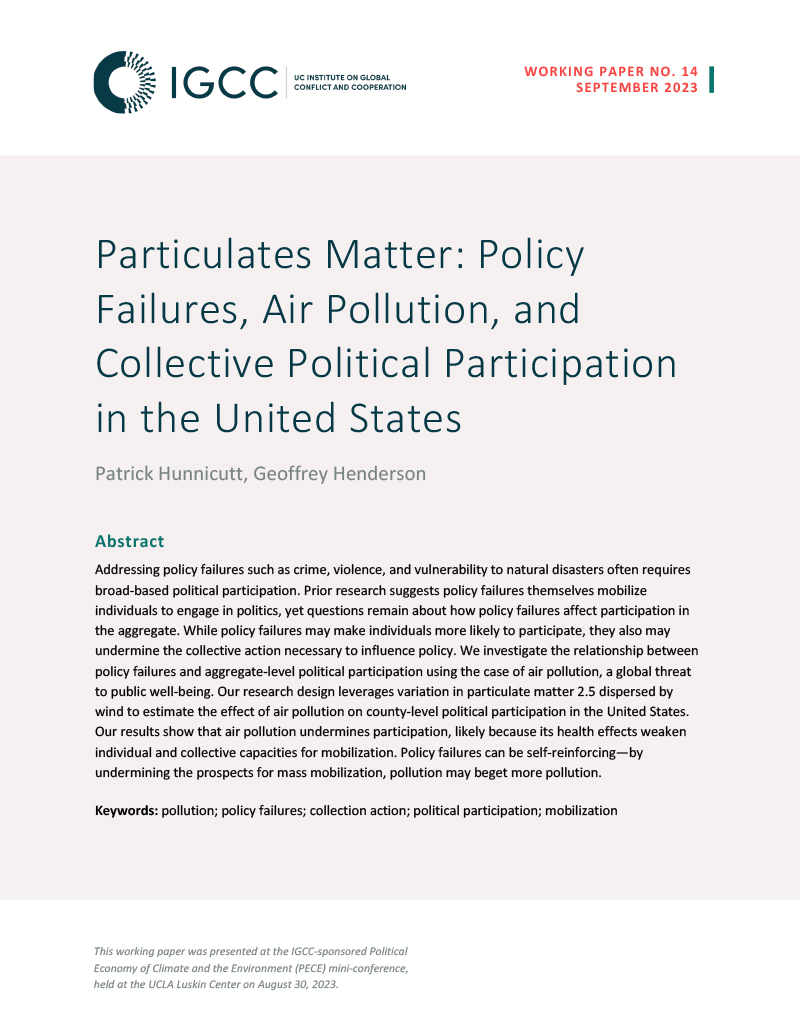Air Pollution’s Impact on Political Participation in the U.S.

In this working paper, Patrick Hunnicut and Geoffrey Henderson find that air pollution reduces political participation, due to the threat it poses to public health and raised costs of collective action. This research has deep implications for the self-reinforcing nature of policy failures.
DownloadAddressing policy failures such as crime, violence, and vulnerability to natural disasters often requires broad-based political participation. Prior research suggests policy failures themselves mobilize individuals to engage in politics, yet questions remain about how policy failures affect participation in the aggregate. While policy failures may make individuals more likely to participate, they also may undermine the collective action necessary to influence policy. We investigate the relationship between policy failures and aggregate-level political participation using the case of air pollution, a global threat to public well-being. Our research design leverages variation in particulate matter 2.5 dispersed by wind to estimate the effect of air pollution on county-level political participation in the United States. Our results show that air pollution undermines participation, likely because its health effects weaken individual and collective capacities for mobilization. Policy failures can be self-reinforcing—by undermining the prospects for mass mobilization, pollution may beget more pollution.
This working paper was presented at the IGCC-sponsored Political Economy of Climate and the Environment (PECE) mini-conference, held at the UCLA Luskin Center on August 30, 2023.